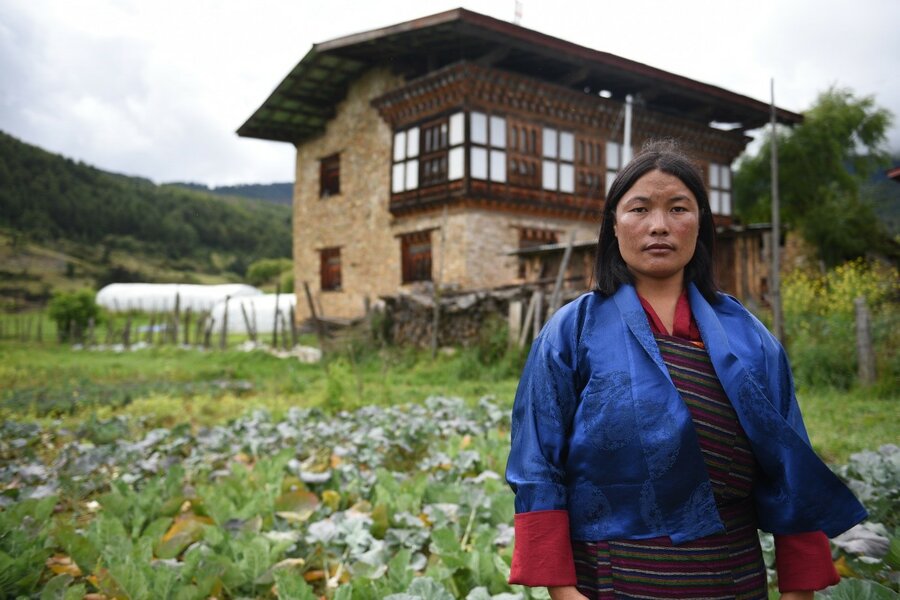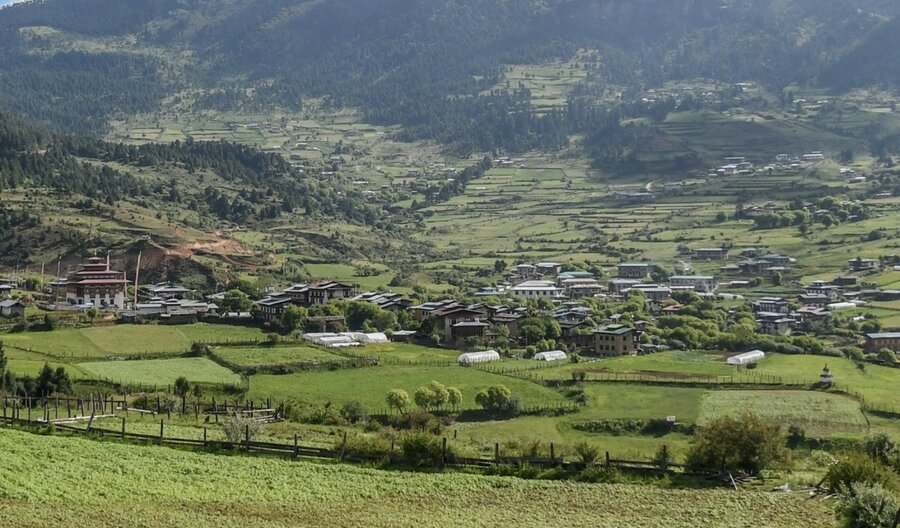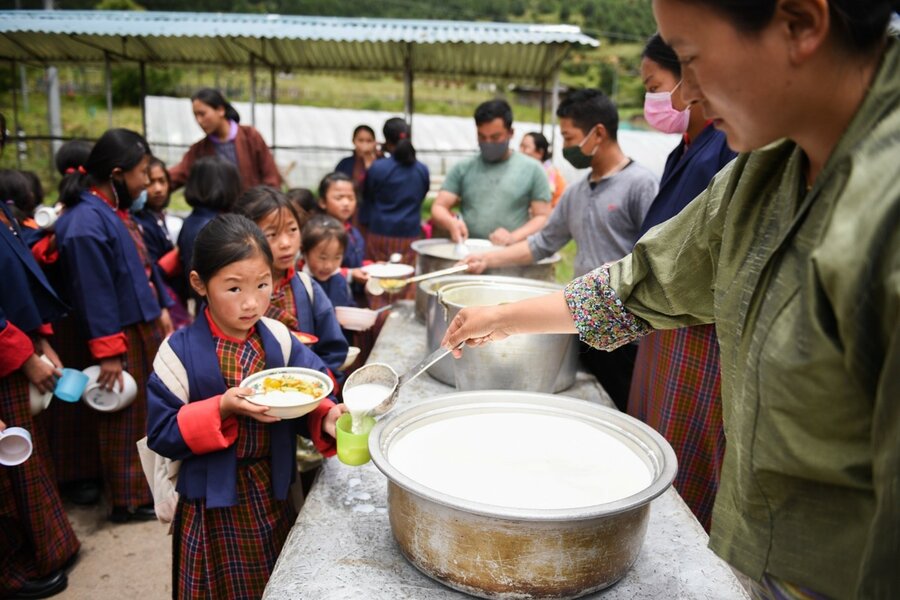A Bhutan farmer grows food for her daughter’s school

Tshering, 32, remembers queuing up two decades ago for World Food Programme meals at her community school in Ura, a picturesque village circled by mountains in central Bhutan.
Now the lunches her 12-year-old daughter eagerly eats at the same school are supported by Bhutan’s government – and include vegetables grown by an all-women farmers’ group that Tshering heads.
“Our meals consisted of bulgur, maize, potato and canned fish,” Tshering says, recalling the simple fare she ate as a young student at Ura Central School, which runs from primary through grade 10. “Today children have fortified rice, meat, eggs, vegetables, fruits and dairy.”
Bhutanese authorities took over the country’s National School Feeding Programme in 2019, but WFP continues to provide support, especially in nutrition interventions. WFP also supports a government drive to link farmers’ groups like Tshering’s to schools.
The initiative has taken wings. As of last year, with support from WFP, some 2,000 farmers were linked to nearly 100 schools in various parts of the country. This is part of Bhutan’s broader effort to ensure locally grown food is on students’ plates.

The growers’ involvement offers multiple paybacks: boosting the variety and nutritional content of pupils’ meals; bringing farming groups additional income and boosting their agricultural practices; and improving parents’ awareness of the importance of a balanced and diverse diet.
The school meals have also strengthened community bonds. As Tshering’s farmers' association has blossomed, earning enough to hire workers and equipment to grow and transport the produce to school, local residents have embraced the group.
“Often community members lend a helping hand during planting season, or offer discounts on hiring machines like power-tillers,” she says.
Tougher times
Over the years, Tshering has seen other major changes in her remote community. As a child, her extended family – with parents, siblings, aunts, uncles and cousins living under a single roof – struggled to put food on the table.
Her two school meals each week at Ura Central School helped immensely.
“Those were difficult times,” Tshering recalls. “When we did not have enough, we had to borrow.”
Today, Tshering’s daughter receives school meals every day, giving the farmer more time to work her fields instead of cooking. The school has also grown, counting nearly 350 pupils today, including many boarders from remote areas.

The school meals programme has changed the family’s life in other ways. Before being contracted to supply its vegetables, Tshering and her group were subsistence farmers, growing mostly potatoes, buckwheat, barley and wheat.
“Nothing much would grow here, because of the climate,” she says.
Tshering’s farmers’ group used their earnings from the school produce deliveries to lease more land. They set up greenhouses provided by the local government agricultural extension office, along with seeds for nutritious vegetables.
“We have started growing tomato, pumpkin, chili, onion, broccoli, cabbage and eggplant,” Tshering explains. “We plan to try out chayote (a type of gourd) next year.”
Because vegetable production is seasonal and harvests vary across the country, her farmers' group is linked with those in other provinces. This allows the groups to procure vegetables from each other between harvests, to ensure a steady supply to schools and other customers.
Two years on, the women still plough most of their profits back into their business, and they are optimistic about the future.
“We hope we will become successful,” Tshering says, “so local youngsters, who now leave the village in search of jobs, will consider staying back and invest in farming instead.”
